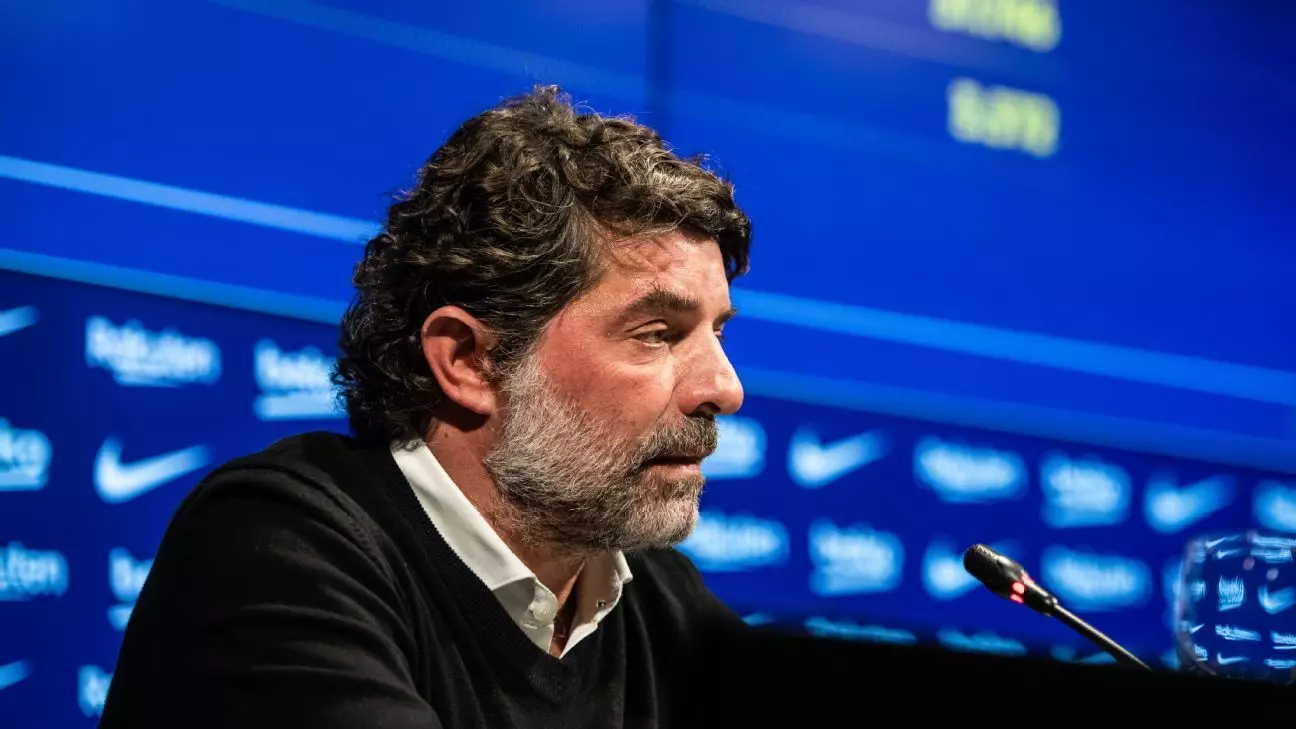The recent resignation of Juli Guiu, Barcelona’s vice president, has ignited discussions surrounding the club’s financial and operational dynamics. Confirmed by the club, Guiu stepped down for personal reasons according to an official statement. However, the underlying circumstances point to deeper issues related to the new lucrative deal between Barcelona and its long-time partner, Nike.
Guiu’s departure raises questions about the club’s governance and the internal disagreements that can arise from substantial financial agreements. The new multi-year contract with Nike, which reportedly secures over €100 million annually for Barcelona, appears to be a catalyst for tension rather than a cause for celebration. Guiu became increasingly disillusioned with the negotiation process, particularly regarding the agent’s commission, which he felt was excessive. This underlying conflict indicates a rift within the executive team, challenging the unity required to navigate the complex landscape of professional sports management.
Guiu’s contributions during his tenure should not be overlooked. He played an instrumental role in aligning major sponsorship deals, most notably with Spotify, which became the club’s primary sponsor and acquired naming rights to the iconic Camp Nou. His resignation not only signifies a loss of expertise in marketing strategies but also raises concerns about how such departures could tarnish Barcelona’s image among current and prospective sponsors. The club now faces the daunting task of stabilizing its governance while simultaneously striving to maintain its lucrative partnerships.
The timing of Guiu’s resignation is particularly troubling amidst unfolding controversies concerning other administrative decisions in the context of financial fair play regulations (FFP). The Spanish sports ministry’s controversial allowance for temporary player registrations contradicts La Liga’s stance about the club’s compliance. Such conflicting governance raises alarm regarding the integrity of operational protocols within Spanish football, and how these controversies might affect Barcelona and its leadership.
The path ahead for FC Barcelona is fraught with challenges. As the club navigates its financial restructuring and reconciles its internal management disputes, Guiu’s resignation stands as a symbolic indicator of the broader systemic issues impacting prominent football clubs. The leadership must prioritize cohesive and transparent decision-making processes to quell discontent among other executive members and maintain trust with stakeholders. The future will undeniably require the club to reflect and reconsider its operational strategies, as they aim to restore confidence in their governance while upholding their historic legacy in the world of football.
The ramifications of Guiu’s resignation extend beyond the individual—merging personal disagreements with overarching financial mismanagement. With a steep path of recovery ahead, Barcelona’s executive leadership must ensure they learn from these challenges to navigate the complexities of modern football management more effectively.

